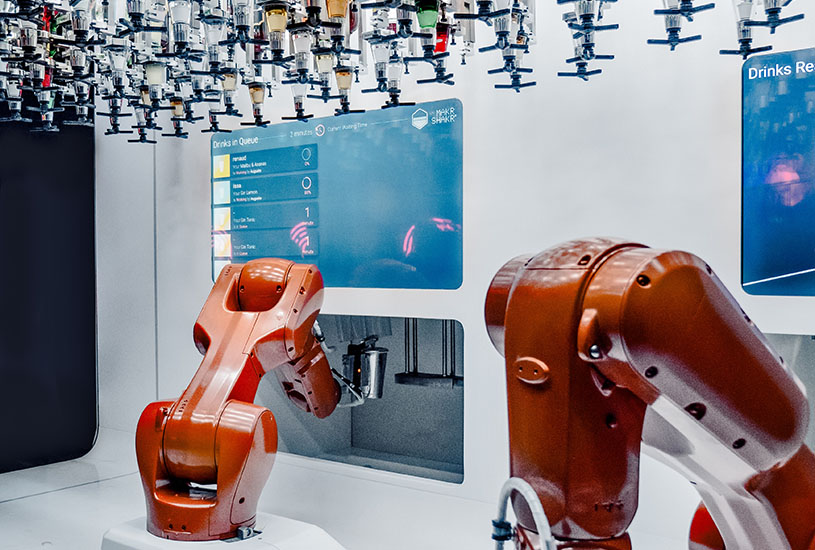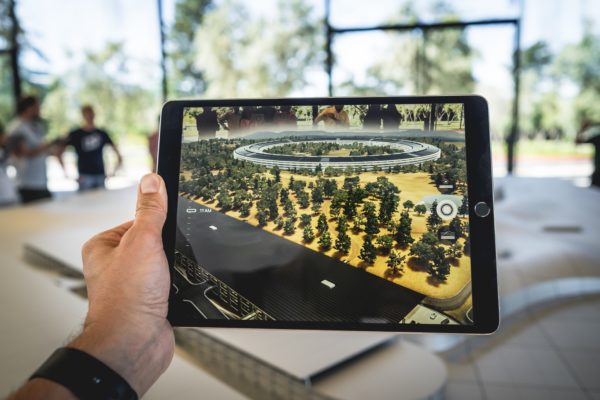World-leading IT expert, Professor Svetha Venkatesh, is using pattern recognition and machine learning to explore frontiers in medicine, materials, mental health and many other sectors.
Most of us don’t know the term yet, but the world is on the cusp of a fourth industrial revolution, claims Deakin University’s new Australian Research Council (ARC) Laureate Fellow, Professor Svetha Venkatesh.
Coined by the founder of the World Economic Forum, Professor Klaus Schwab, and the theme of the Forum’s 2016 annual meeting, this revolution is characterised by the embedding of technology within societies – and our bodies.
It is being driven by a new phase of technological breakthroughs in fields such as robotics, artificial intelligence, nanotechnology, quantum computing and biotechnology. It offers huge potential for areas such as health, communication, business, environmental protection, security and conflict resolution, amongst many others.
Professor Venkatesh is the Director of Deakin’s Centre for Pattern Recognition and Data Analytics (PRaDA). She is Deakin’s third ARC Laureate Fellow, joining Deputy Vice-Chancellor Research Professor Peter Hodgson and Professor Maria Forsyth as recipients of the ARC’s highest honour.
The Fellowship provides five years of research funding for Professor Venkatesh and her team. An additional 18 researchers (including around seven PhD students) are expected to join the current team of 28 over the next 12 months. Dr Santu Rana and Dr Sunil Gupta from PRaDA are excited to lead technical teams in this multidisciplinary endeavour.
Professor Venkatesh is optimistic the team will help to establish Australia as a leader in innovation-led productivity through the fourth industrial revolution.
“The Fellowship means we can concentrate on long-term research,” she said. “It will provide real value – allowing us to undertake significant scientific and translational research. We will be seeking to advance both the theory and practice of pattern recognition through machine learning algorithms.”
She noted that the technology will disrupt current experimental methods and provide a new framework to guide humans through experimental complexity.
[testimonial_text]The most significant role of this technology will be its potential to transform the way complex experimental explorations can be done. That will turbocharge innovation in many different fields[/testimonial_text]
[testimonial_picture name=”Professor Svetha Venkatesh” details=”Alfred Deakin Professor”]
 [/testimonial_picture]
[/testimonial_picture]Instead of using traditional trial and error processes, she explained, pattern analysis puts a human and an algorithm in the loop together. The algorithm acts as a guiding agent, allowing the researcher to test options faster and with much greater depth than would have been possible only a few years ago.
Among her many achievements with her team, Professor Venkatesh is most proud of the Toby Playpad, an early intervention program that uses machine learning to provide personalised teaching for children with autism. It is currently being used by over 8000 children around the world.
Her research has led to two start-ups, including the award-winning iCetana, which uses video analytics to detect potential security threats in large data sets and is now also in use around the world.
Professor Venkatesh believes that health is one sector likely to see huge advances over the coming decade. Earlier this year, PRaDA signed a partnership agreement with the Garvan Institute to accelerate precision medicine, where individual information, including genetic information, will guide an individual’s healthcare.
Her team has also developed iHosp, software that allows hospital administrators and clinicians to see at a glance what’s happening in their hospital, on the ward or to their patients, and is working with the Black Dog Institute to identify signs of depression in volunteers by monitoring social media.
A number of new projects are in the pipeline. These include a collaboration with a team from the Institute for Frontier Materials (IFM), led by Professor Matthew Barnett, to develop a new class of high entropy alloys – using algorithms to predict the best alloy composition and heat treatment processes. This is a $1 million project, funded by the Australia-India Strategic Research Foundation, which has the potential to position Australia and India in the multimillion dollar high performance alloy market.
Her team is also working with IFM Senior Research Fellow Dr Alessandra Sutti investigating new applications for short polymer fibres. A production process that has been patented by Deakin and commercial partner Hei Q Australia allows large scale production of these unique fibres and has enormous commercial potential.
Prof Venkatesh is also second Chief Investigator in the newly-announced ARC Research Hub for Digital Enhanced Living, led by Pro Vice-Chancellor ICT Innovation and Translation, Professor John Grundy. The Hub will develop world-leading technologies that improve life for people who are elderly or disabled, through software, social media portals, sensors or data integration. It involves 12 partner organisations or industry collaborators, and four Australian and six international Higher Education providers.
“I don’t know where all these projects will take us,” noted Professor Venkatesh. “I’m not a metallurgist or a medical researcher. At PRaDA, we come up with the algorithms. We have always been interdisciplinary, looking at real problems to find solutions with experimenters.
“I chose to study computing because I liked physics and I liked adventure. We don’t know exactly where we’re going. We are merely explorers.”
Published by Deakin Research 3 July 2017.



